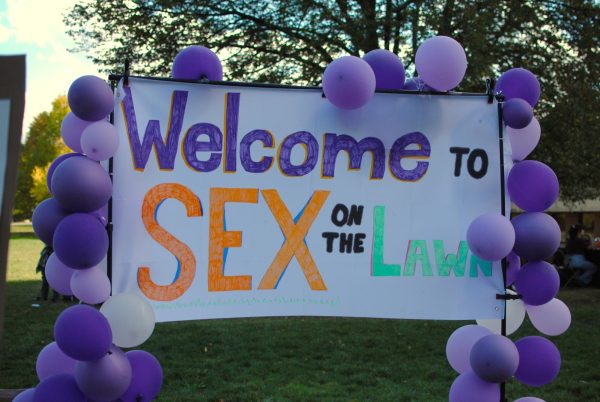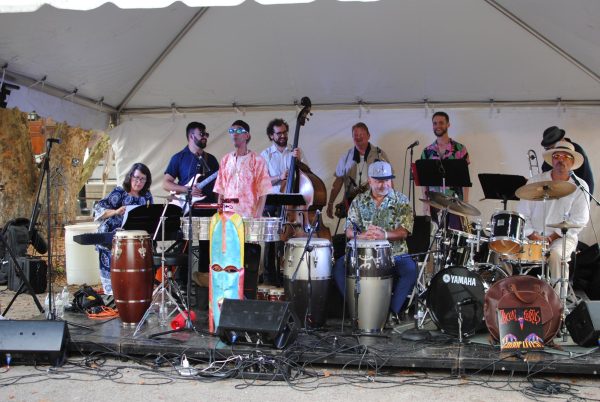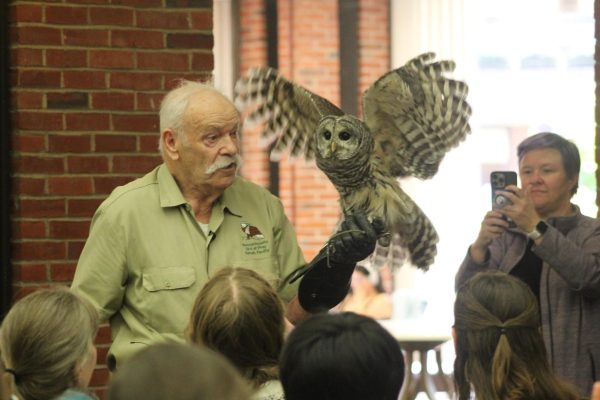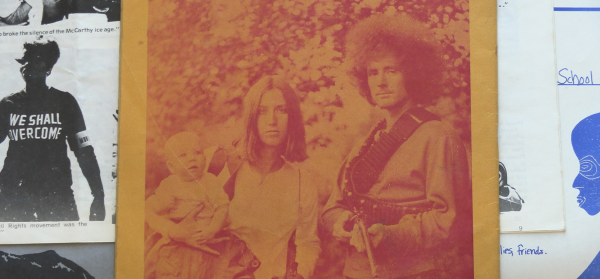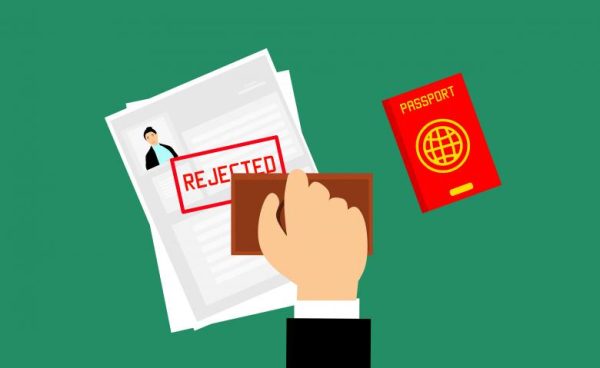Manifest identity: Reflecting on my own identity as a Puerto Rican through the identity of others
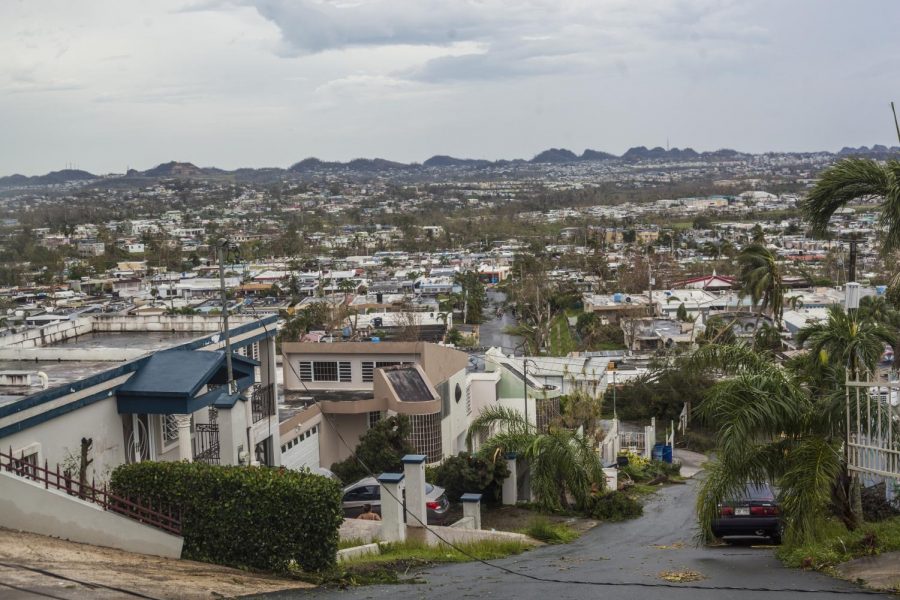
I am Puerto Rican. For the longest time, that sentence felt self-explanatory; I am from the island, I embrace the culture, most of my family lives there, I eat the food, I listen to the music … It seemed simple.
As I grew older, however, I found myself explaining a lot. Yes, I speak Spanish. No, I’m not Spanish. Yes, I am a citizen. No, it’s not because I have a green card. Yes, Puerto Rico is part of the United States, but no, not really.
The concept of cultural identity in the United States is fascinating. You show pride in your heritage by listing your pedigree — 57 percent Italian, 25 percent Irish, 16 percent Dutch and 2 percent unknown, but you plan on taking a DNA test to confirm you have that little bit of Greek you’re convinced you have. In fact, many of my own peers will identify as one or many other nationalities before identifying as what they really are: American. But so do I. I’m Puerto Rican.
The daily battle with my cultural identity stems from this constant “othering” we participate in regularly. As someone who is caught between two cultures — a Puerto Rican who has been on the mainland for most of her life — I crave to know how my fellow Boricuas cope with their seemingly dual identities.
My plan was straightforward: I asked five Puerto Ricans how and why they felt American. Their responses, however, had me questioning what it means to be Puerto Rican in the first place.
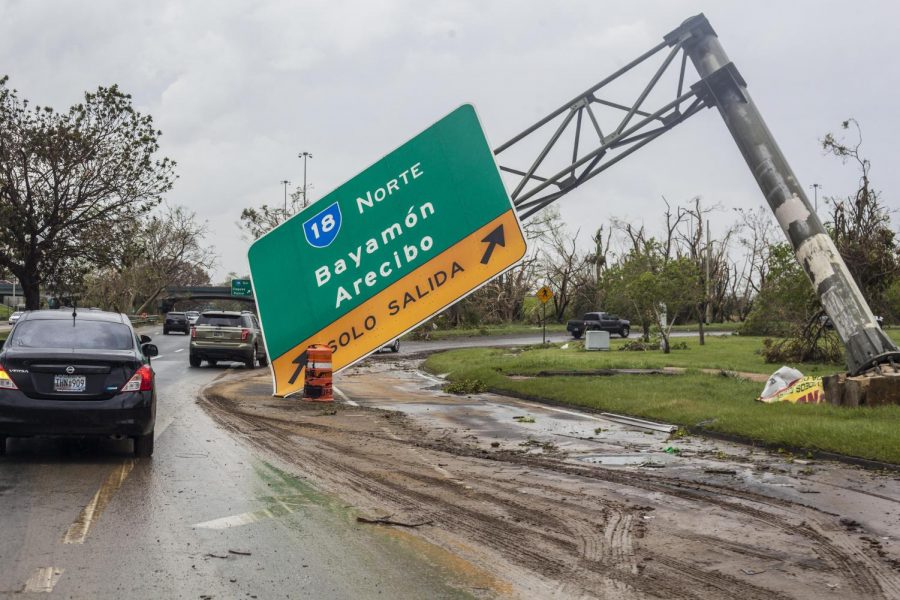
Colonization and commonwealth
Puerto Rico was known as Borinquen to the indigenous Taíno people until 1493 when Christopher Columbus and his crew claimed the island for Spain and renamed it San Juan. It would take about 65 years for Spanish rule to be fully and forcefully imposed on the Taíno people. Juan Ponce de León became the island’s first governor in 1508.
During its time under Spanish rule, San Juan became central to Spain’s economic and imperial growth. The island’s main shipping city was known as Puerto Rico, or Rich Port. These names switched as people began referring to the island as a whole as Puerto Rico and to the capital as San Juan.
Puerto Rico’s colonization under Spain brought prosperity and opportunity to the mother country, but disease, forced labor and limited economic growth for the natives. The African slave trade was soon introduced to the island, further expanding the agriculture-based economy. Although slavery on the island ended in 1873, the impact is lasting. The coexistence of the Taíno, European and African cultures is often attributed as the source of Puerto Rico’s diverse culture and racial makeup.
Spain used Puerto Rico as a military stronghold against the opposing European empires colonizing nearby islands, resulting in the colonial-era forts that still exist today. However, the stronghold could not hold forever. In 1898, nearly 400 years after the Spanish flag was first planted on the island, the Spanish-American War took place. The war ended with the 1898 Treaty of Paris in which Spain ceded its territory in the Philippine islands, Guam and Puerto Rico. While the Philippines were granted independence, Puerto Rico and Guam went on to become U.S. territories.
In the 20th century, Puerto Rico rapidly underwent many political and economic shifts. There were several attempts to Americanize the island, seen by the mandate to teach English in public schools, and even a brief period of time when the island was called Porto Rico, the anglicized version of its name.
In 1917, the Jones-Shafroth Act granted Puerto Ricans citizenship in the U.S. In 1952, the nation transitioned from a territory and became the Estado Libre Asociado (ELA), or Commonwealth, of Puerto Rico. By then, the island’s government created its own constitution, but lacked full autonomy, solidifying Puerto Rico’s right to self-governance through permanent union with the United States. ELA status does not grant the island federal voting power.
There have been five referendums regarding Puerto Rico’s status in 1967, 1993, 1998, 2012, and 2017. The last referendum saw record-low turnout with only 23 percent of Puerto Ricans showing up to the polls due to a boycott by the pro-status quo Popular Democratic Party. Of those who showed up, 97 percent voted in favor of statehood, attributed to voters from the New Progressive Party. The power to make Puerto Rico the 51st state lies ultimately with the U.S. Congress.
In May 2017, Puerto Rico declared bankruptcy, and in September of the same year was devastated by Hurricane Maria.
Today, the 35-by-100-mile island is home to approximately 3.4 million American citizens. Census data shows that 43.5 percent of Puerto Ricans are in poverty, and only about 25 percent of Puerto Ricans over the age of 25 have Bachelor’s degrees. These numbers have not been updated since before Hurricane Maria.
Only 54 percent of Americans in the mainland know that Puerto Ricans are U.S. citizens, according to a survey by Morning Consult.
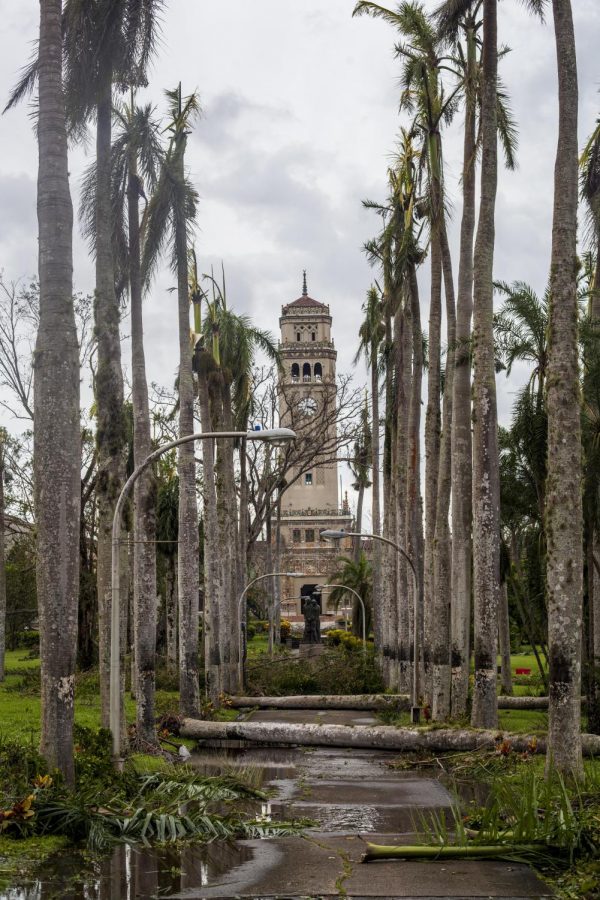
Un-American citizen
“I never thought I was American. I know I have citizenship, but…” Andres Villeta Astacio trails off. The 20-year-old does not hesitate when identifying his nationality, but his attachment to the mainland requires some pause.
“Now with what’s happening with Hurricane Maria, I feel more marginalized and left out than before. The second-class citizenship is more pronounced,” said Villeta Astacio.
Although Villeta Astacio is at the University of Massachusetts, the marketing student was born and raised in Puerto Rico — a fact that he emphasizes is central to his national identity. Once, he was asked by a professor if he was an international student, and he said yes.
“When I told the professor that I was from Puerto Rico, he said that it doesn’t count,” said Villeta Astacio.
But to Villeta Astacio, Puerto Rico and Massachusetts are different worlds, something that was emphasized when he first came to UMass.
“Obviously it’s not the same! The people aren’t the same, the affection isn’t the same, you don’t have your family with you, so you get a little sad. No one speaks Spanish, so when you find someone who does you get super giddy because, ‘Oh my God, I can speak Spanish again,’” said Villeta Astacio. Even the weather, according to him, makes the difference between his homeland and the country that grants him citizenship.
And yet, Villeta Astacio’s feelings on his identity are not the same as his feelings on Puerto Rico’s status.
“Personally, I wouldn’t like to be part of the United States,” he said. “But if we get to a point where we have to choose because it is definitely going to happen, right now I would say yes to statehood. I obviously have my sense of patriotism or nationalism, whatever you want to call it, but even then, the benefits outweigh the deficits,” said Villeta Astacio.
“If our schools and the future of the people in Puerto Rico will get better, and if all of this misery that is on our island can be made better, then go for it. Because right now, we’re in a limbo and this limbo does not help. The ELA is not good. You either become independent or you become a state.”
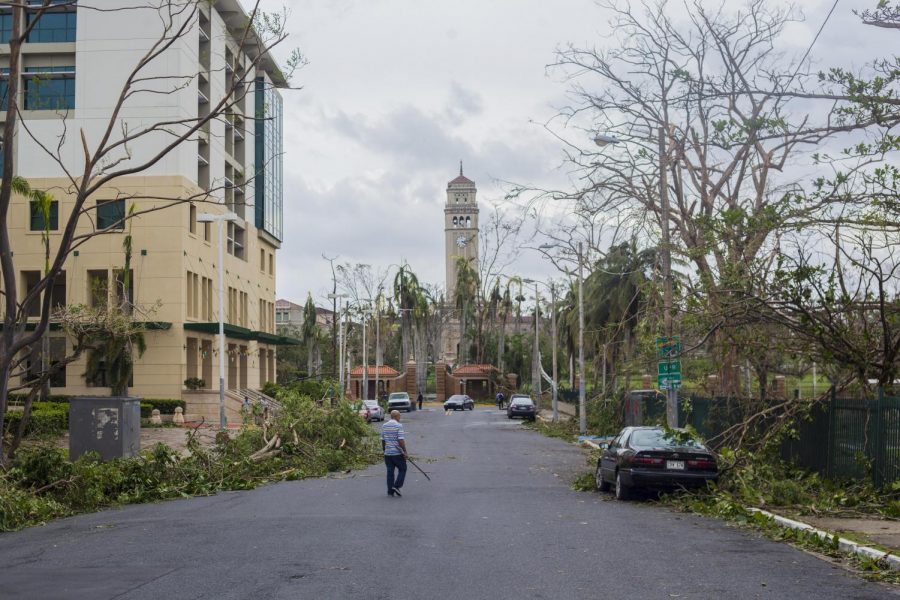
Red, non-white and blue
“No, but what are you?”
Not an unfamiliar question to Viviana Angel Cruz, who is Puerto Rican on her mother’s side and Mexican on her father’s side. Her racially ambiguous appearance has left many vocalizing their inability to pinpoint her ethnicity.
“When I’m asked, ‘What are you?’ I always panic because I had no idea how to answer.”
By the time she was a sixth grader in Springfield, Angel Cruz had spent the first eight years of her life on the island. Puerto Ricans make up 85 percent of all Latinos in Springfield according to a study from the University of Massachusetts Boston. There was every reason to believe that this transition to the mainland would be smooth.
Her mixed ancestry, however, made her the victim of verbal abuse and menacing acts.
“The whole class started chanting, ‘Mexican bitch,’” said Angel Cruz. When she went to the administration about it, no actions were taken to help her.
In another instance, one of Angel Cruz’s classmates used a knife to cut through her backpack and stole all of her belongings. “It was not about the stealing, it was about making me feel targeted all the time,” she said.
“It was really hurtful to me. For a while, I had this confusion because my experience with white people was that I didn’t know the subtleties of racism with white people. So in my head, it was my own people who were being racist to me, it was horrible.”
After leaving Springfield, Angel Cruz moved to Agawam and then Wilbraham, where she went to high school. There the discrimination was much more discrete but it was just as impactful. Most notably was when her white friends would tell her that she was “basically white.”
“I used to think that was a compliment,” she said.
“I feel like it’s also ingrained in me that people are going to be xenophobic, or they’re going to be racist. I feel like in my hierarchy of what’s more acceptable, being Puerto Rican is more acceptable. And that’s what I’ve said my whole life, that I’m Puerto Rican.” Angel Cruz admits to placing her Mexican identity below her Puerto Rican identity because of the bullying she went through almost ten years ago.
It was not until she came to UMass that she began accepting her identity, even beginning to connect with the African ancestry she has in her lineage. She also rethought some of her political ideologies. In high school, she was a Republican.
“When I came to college, it was literally like a slap in the face. Like, what the hell? I’ve been sleeping the whole time!” Angel Cruz, a political science and African-American studies student at UMass, credits learning about history from “outside of a white man’s lens” for her ideological awakening.
She is taking this newfound empowerment and putting it into action. “What I’ve been doing, every other time just to keep it short, one time I’ll say Puerto Rican and another time I’ll say Mexican.” She is excited to continue exploring her Mexican roots as she grows to “accept that that’s part of who I am as well.”
One thing Angel-Cruz won’t call herself, though? American.
“I’ve never, ever, ever said that I’m American to someone,” she said, attributing it to the conversations she heard growing up. “My family is very pro-independence, so to them, for someone to tell them they’re American is like an insult. They hate America.”
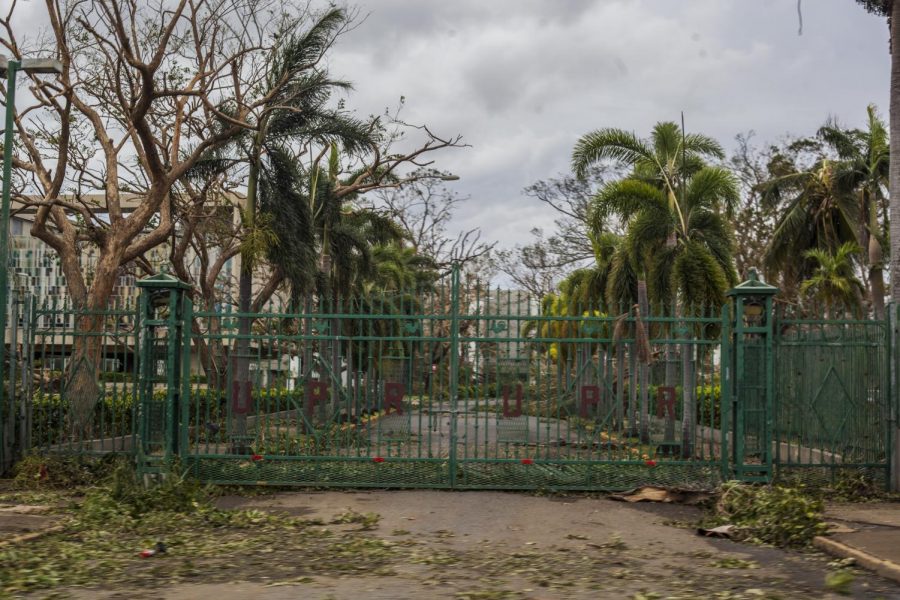
Make Puerto Rico great again
Before 20-year-old Vianca Rodriguez Feliciano transfers to Arizona State University in the spring, she leaves behind a legacy at the University of Puerto Rico (UPR) Mayagüez campus. On Dec. 1, 2017, the College Republican Mayagüez Chapter she founded became officially recognized by the university.
“We are simply college students fighting for what we believe in and for our right to say what we want to in majorly liberal campuses who try to coerce us into silence, voluntarily,” said Rodriguez Feliciano of the group in a conversation over text message.
For this political science student, her conservative beliefs are the result of a conservative upbringing. The principles that were instilled in her “majorly Christian home” were reinforced while she was at college. Although for a brief moment she found herself supporting 2016 presidential candidate Bernie Sanders, the Democratic party’s overall beliefs were not ones she felt comfortable endorsing.
“I quickly came to realize after careful thought and consideration that I just cannot stand for many things Democrats claim to defend,” wrote Rodriguez Feliciano. “For one, they are the party that has least done concrete action in favor of statehood. Second, they play the role of identity politics too much, and I don’t believe there is a necessity of victimizing myself for being a minority in order to advance in life.”
“The values I was raised with … have definitely shaped me into identifying a more clear way that I am definitely a conservative. And I feel it’s important to make sure other people know that being conservative and identifying with Republican ideals is okay,” said Rodriguez Feliciano, who identifies as a Puerto Rican-American.
To her, these ideals include financial independence as an adult and treating others with respect equally. And although she admits the relationship between the United States and Puerto Rico has at times been flawed, she credits the two for sharing more similarities than people think.
“Both in Puerto Rico as in the U.S., everyone is free to celebrate their traditions as usual in however way they decide to. That’s another positive thing to attribute to our relationship.”
As a Republican in Puerto Rico, however, she has received backlash from many of her peers and fellow islanders. In fact, the negative attention her opinions received on social media and at her college campus left her feeling “more like an alien within my own island.”
Despite the critics, Rodriguez Feliciano continues moving forward and actively pursuing her “passion to achieve statehood for the island.”
“I dream big so I hope I can eventually consider running for Senate or something of the like,” she said.
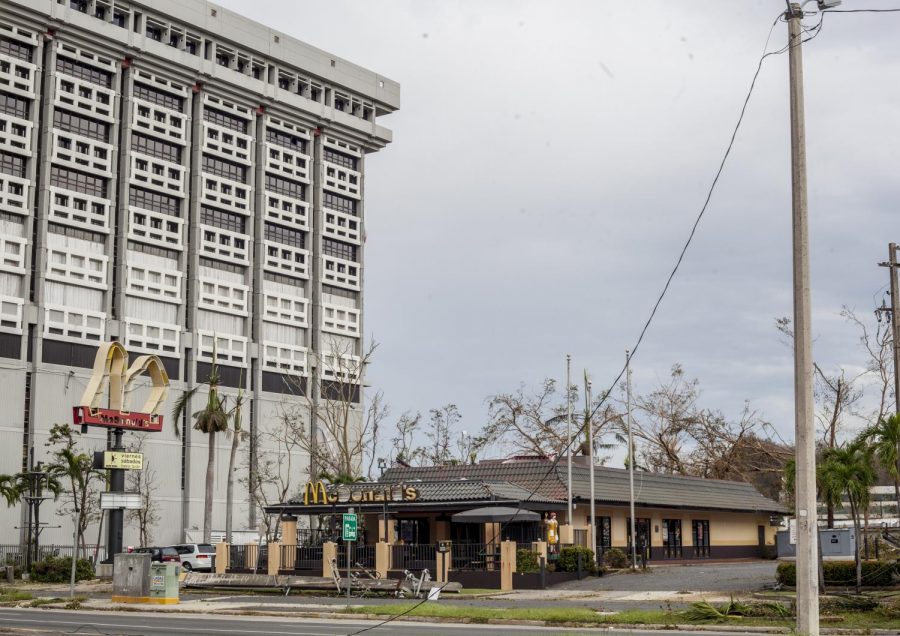
Self-determination, determined self
“How do you reason a country’s independence with a person’s independence?” José Coss questioned as he introduced the philosophy that drives his political thinking.
“I believe that a person’s psychological interest in life is to work towards his personal independence — economic independence, emotional independence. You want to be auto-sufficient. I think that that sets everything you need to believe in the independence of a country.”
This is the foundation of the 26-year-old UPR law student’s separatist ideology. Coss has lived his whole life in Puerto Rico and has never felt any attachment to the country that colonized his own.
Puerto Rico’s independence is not the only issue he finds worth fighting for. Coss played a role in the student strike that took place in May 2017, even going out to New York City’s Puerto Rican Day Parade after the strike was over to continue advocating for the rights of Puerto Ricans on the island.
“I think more important than that right now is to attend to some issues that are of importance,” said Coss. “Those issues, as you work towards them, the approach can be working towards independence or just setting the floor to making Puerto Rico independent.”
The ideas he holds were introduced to him through his family. His grandfather was a poet from Río Piedras who owned a framing business, leading to him spending a lot of time at UPR. When his sons, (Coss’s father and uncles), began their studies at UPR, Puerto Rico was seeing social unrest that led to student strikes. At this point in the late 1970s, the Socialist party of the island was gaining traction and the Cerro Maravilla Massacre took place, an event that killed two pro-independence activists.
The collective experience of Coss’s father and his father’s friends and family were formative, undoubtedly the basis of many of the stories Coss heard growing up.
“I can’t escape my reality of my family and what my family has done for the country,” said Coss.
But let one thing be made very clear: Coss’s ideas are his own, independent of his exposure to his family’s belief’s growing up. “It’s not a family thing, it’s a political thing.”
“The concept is something that is very mine,” said Coss. “It may be the same as my father’s or it may not, but it’s mine.”
“You can have a person that grows up in this environment and does not think this way. I think that it’s a very personal belief, even if you love your family and you love all they have done for you. You still have an independent thought.”
We are your tired, your poor
“No, I don’t feel American. I really just don’t feel identified,” said Anna Bertrán Rivera, a 25-year-old UPR law student. “Obviously, a lot of respect. But I don’t feel American because it’s not the same culture, it’s not the same way of thinking, it’s not the same way of looking at life.”
“How am I supposed to identify with this country that treats me as inferior and tells me by way of their diverse laws, and hundreds of years of history, that I am inferior to them?” The lack of voting rights, the lack of federal representation and the lack of reciprocated give and take between the nations are all reasons Bertrán Rivera sites as critical issues in the imbalanced relationship.
Bertrán Rivera is pro-independence and can directly attribute it to her family’s history; her great-grandfather was one of the founders of the Independence Party.
“It was in my family all along,” said Bertrán Rivera, who grew up around her mother’s family. “They inculcated in me the sense of “we are different and we should be our country.”
This comes at a stark contrast to her father’s side of the family, that Republican and pro-statehood. Bertrán Rivera has heard both sides of the argument and decided for herself that conservatism has no place in Puerto Rican political discourse.
“I don’t like the way they portray what they are and how they treat people,” said Bertrán Rivera. “They just think that as Puerto Ricans we are nothing without the United States, and that’s always the mentality. And that’s the mentality that the government here uses, so people are always depending on the United States.”
To her, the rhetoric is belittling and invalidating. But while the idea of staying and actively fighting to better Puerto Rico sounds good in theory, Bertrán Rivera admits that the quality of life is just not what it used to be.
“Life here can be very difficult,” she said. “We’ve reached a point where there are so many people that are just used to having everything be difficult and it’s just the way it is.”
The way she explained, it came down to the fact that the cost of living in Puerto Rico is higher than many can afford, and even the hardest work goes unrewarded. This is the new normal.
“I get why people leave, I really do,” said Bertrán Rivera. “Everyone between the ages of 20 and 27 thinks at least once every two weeks about leaving.” Herself included.
No one pretends to offer a simple solution to this nuanced and convoluted issue, but Bertrán Rivera sums it up like this, “I just don’t want to be the way we are right now. Please, either make me a state or just let me go because this is not fair.”
Stand beside her and guide her
Do Puerto Ricans feel American? To my own selfish dissatisfaction, I have to say it depends.
The notion of identifying as anything at all is to signal outwardly what matters to you. All five individuals that I spoke to have a deep love for the island that raised them, and continue taking the necessary steps to see their nation advance towards a better future.
Personally, I was hoping to find answers, and give myself closure regarding my status as “foreign in a domestic sense.” I wanted to be convinced once and for all about which way of thinking was the best for me. But all I’m left with now is even more questions. The big one, of course, is where do we go from here?
So far, the conversation I’ve been having is one-sided and entirely from the view of the island. Admittedly, I fear involving mainlanders because I do not know whether they are as informed on these issues as Puerto Ricans are. They’ve never had to be.
As I and my fellow Puerto Ricans move forward and work on bettering our nation, it is imperative that our American brothers and sisters educate themselves and join the conversation, if only to amplify and give a platform to our concerns as a people. Three and a half million American citizens cannot afford to delay any longer. This is not a cry for help, but rather a demand for justice.
So, I guess I still don’t know where I stand on feeling American, but I know I am proud to be Puerto Rican.
Email Sabrina at [email protected].

